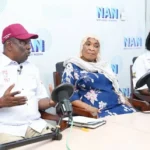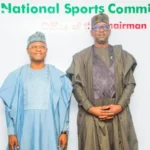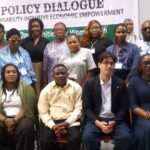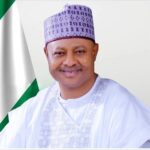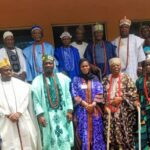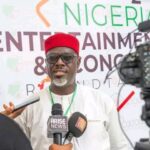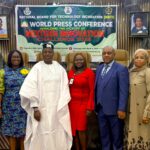By Philomina Attah
Vote-buying has remained a major part of the problems of election management in Nigeria. Twenty four years since the return of democracy in the country, it has remained an obstacle to free, fair and credible elections in the country.
The issue has attracted various responses from stakeholders who mostly view it as one of the cankerworms that constitutes brazen assault on Nigeria’s democracy.
As Nigeria prepares for the 2023 general elections, the problem of vote-buying is being tackled by various stakeholders, including anti-graft agencies with a view to permanently bury the problem.
Already the Nigerian government has criminalises vote-buying and selling, thus making it easier for security agencies and the courts to deal with culprits.
One of the major stakeholders, the Chairman, Economic and Financial Crimes Commission (EFCC), Mr Abdulrasheed Bawa described vote-buying as continuous exploitation of large section of the society by politicians.
“Like the proverbial child who traded his future in order to satisfy his immediate, we have consistently witnessed the continuous exploitation of a large section of the society by politicians.
“The vulnerable have continued to remain oblivious of the consequence of vote-buying and selling.
“They fail to realise that when they sell their votes, they also give up their rights to demand for transparency and accountability from elected leaders.
“They sell their future and that of their unborn children for an insignificant and greatly undervalued sum,” he said.
Analysts listed some consequences of vote buying to include loss of integrity of the elections and elected officials, recruitment of bad leaders, promoting poverty and mortgaging the rights of the electorates to demand accountability.
In spite of these consequences, Nigerians have continued to engage in illegal trading of votes.
According to the Director-General, National Orientation Agency (NOA), Dr Garba Abari, survey-based evidence shows that one in five Nigerians are exposed to vote peddling while almost four in 10 Nigerians are exposed to electoral violence.
To effectively tackle the menace of vote buying, Sections 121 and 122 of the Electoral Act 2022 has made it a criminal offence in the country.
Section 121 (1) of the Act stipulates that: “any person who directly or indirectly, induced any other person to vote or refrain from voting commits an offence and is liable on conviction to a maximum fine of N500,000 or imprisonment for a term of 12 months or both.
“Section 121 (2) stipulates that: “a voter commits an offence of bribery where, before, or during an election, directly or indirectly, by himself or herself, or by any other person, on his or her behalf receives, agrees, or contracts for any money, gift, loan, or valuable consideration, office, place of employment, for his or herself, or any other person, for voting or agreeing to vote, or for refraining or agreeing to refrain from voting at any such election.’’
A recent research by Good Governance Awareness Initiative (GGAI), and NGO, identified poverty, threats by political parties, lack of proactive measures by security agencies and lack of interest in the electoral process as some of the factors encouraging vote-buying.
The Executive Director of GGAI, Ms Maureen Onwukwe said that over the years, elections in Nigeria had been marred by ballot stuffing and snatching, as well as violence.
Onwukwe, however, said that with the technological innovations introduced by the Independent National Electoral Commission (INEC) and the Electoral Act 2022, it will now be extremely difficult for political parties to rig elections in Nigeria.
“That is why politicians now devise vote-buying as another means to manipulate the supposed decision of electorate.
“This presents a fresh danger to the integrity and reliability of elections in Nigeria,” she said.
Already, INEC has taken measures to tackle the trend and ensure the sanctity of the electoral process.
Among the measures taken by INEC was going into partnership with EFCC and the Independent Corrupt Practices Commission (ICPC) to arrest and prosecute vote sellers and buyers.
According to INEC Chairman, Prof. Mahmoud Yakubu, INEC has also re-configured all polling units to bring the ballot boxes closer to voting cubicles and banned the use of mobile phones and photographic devices by voters while in the voting cubicles.
“We have also intensified our collaboration with the EFCC and ICPC to deal with both the buyers and the takers under the law,” he said.
He added that in an effort to curb the menace, the membership of the Inter-Agency Consultative Committee on Election Security was expanded to include the two anti-corruption agencies.
“The two agencies have been deploying their operatives during elections and this effort is paying off.
“For instance, following arrests made during the recent Osun Governorship election held on July 16, the EFCC made arrests and after investigation found evidence to charge the suspects to court in Osogbo.
“We are right now working with the EFCC to ensure their prosecution. I wish to commend the EFCC for this initiative and assure them of our support at all times,” Yakubu said.
Speaking at a one-day stakeholders summit on “Addressing the Influence of Money on the 2023 General Election’’ last December, Yakubu assured that INEC would not relent in its determination to prevent vote-buying during the 2023 general election.
He however called for concerted actions by citizens to reject inducements to sway their votes through vote-buying and report such cases to INEC and other agencies.
“Financial institutions, religious organisations, traditional institutions, the media, civic bodies and citizens must also join in this fight,” Yakubu said.
Also speaking at the summit, Chairman of ICPC, Prof. Bolaji Owasanoye, said vote buying has the tendency to scuttle good governance.
According to Owasanoye, a government that is purchased will have no obligation to the people.
“A faulty and corrupt electoral process emboldens incompetent and corrupt government. They do not have to care about our feelings and our complaints.
“In such situation, impunity will reign and corruption will thrive” the ICPC chairman added.
The Inspector-General of Police, Mr Usman Baba, said the police had devised strategies to arrest and prosecute politicians moving on election days with tonnes of cash to buy votes.
Baba said concerted efforts were being made by the police, as the lead agency in election security management, to ensure that the use of money was not allowed to influence the 2023 general elections.
“We will ensure that at least, this menace is brought to the barest minimum; we will achieve this in synergy with sister security agencies, anti-graft and intelligence agencies and other stakeholders”, he said.
According to Baba, a lot of arrests have been made of persons buying voter registration cards to rig the 2023 elections and some political thugs.
“We will also ensure that the Police X-Squad, intelligence officers and investigators are moved to the field to ensure that politicians moving on election days to buy votes are apprehended and dealt with according to the provisions of the law,” he added.
The IGP emphasised that with the measures being taken by stakeholders, the use of money during the 2023 elections will be greatly curtailed.
“We will do all we can within the confines of the law to bring the offenders to book.
“Some politicians spend huge sums of money to get elected to office, thus their priority is to recoup the money they spent during the election.
“The consequence of this is that, those elected provide poor governance and deny the public the benefit of good governance, as they most likely are not the best candidates.
“When elections are influenced by money, credibility of the process is questioned. This leads to rancour and the possibility of violence after the elections.” Baba said.
Beyond the arrest and prosecution of the offenders, the anti-graft agencies have also intensified efforts on awareness campaign on the need for Nigerians to shun vote trading.
To facilitate this, the EFCC has entered into partnership with the Committee of Youth on Mobilisation and Sensitisation to undertake grassroots campaigns against vote-buying, cybercrimes and other forms of corruption.
The ICPC has also gone beyond arrest to preventive measures to end vote-buying in Nigeria.
Experts believe that these measures will help to greatly stop vote-buying, ensure free and credible election and the emergence of credible leaders committed to meeting the dreams of a greater Nigeria. (NAN Features)
**If used, credit the writer and the News Agency of Nigeria (NAN)
Edited by Maharazu Ahmed

